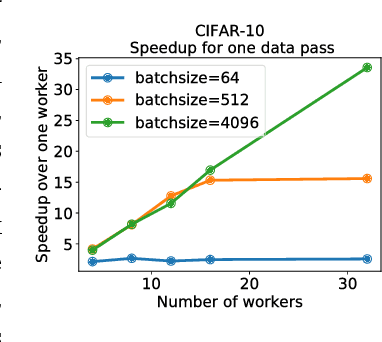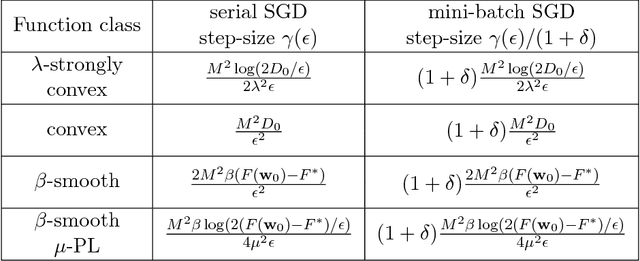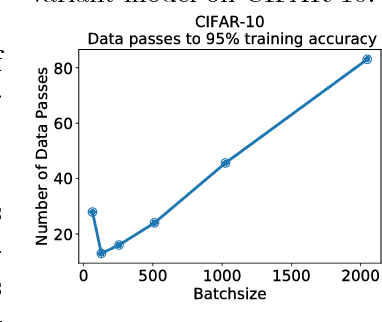Gradient Diversity: a Key Ingredient for Scalable Distributed Learning
Paper and Code
Jan 07, 2018



It has been experimentally observed that distributed implementations of mini-batch stochastic gradient descent (SGD) algorithms exhibit speedup saturation and decaying generalization ability beyond a particular batch-size. In this work, we present an analysis hinting that high similarity between concurrently processed gradients may be a cause of this performance degradation. We introduce the notion of gradient diversity that measures the dissimilarity between concurrent gradient updates, and show its key role in the performance of mini-batch SGD. We prove that on problems with high gradient diversity, mini-batch SGD is amenable to better speedups, while maintaining the generalization performance of serial (one sample) SGD. We further establish lower bounds on convergence where mini-batch SGD slows down beyond a particular batch-size, solely due to the lack of gradient diversity. We provide experimental evidence indicating the key role of gradient diversity in distributed learning, and discuss how heuristics like dropout, Langevin dynamics, and quantization can improve it.
 Add to Chrome
Add to Chrome Add to Firefox
Add to Firefox Add to Edge
Add to Edge